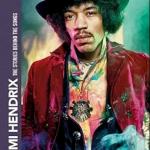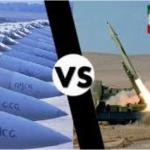As Andrew Sullivan reminds us, Plato predicted Donald Trump, down to his personality and lifestyle. Plato also predicted multiculturalism, feminism, adults imitating children, tolerance for everything, morality giving way to pleasure above all, opposition to all authority, resentment against the rich, teachers controlled by students, and the rise of tyranny. All of these grow out of democracy, as it runs its course. Sullivan also shows how our founders tried to prevent these things from happening by designing a republic (not a pure democracy) with constitutional checks and balances, but how those have eroded. “Tyranny,” said Plato’s Socrates, “is probably established out of no other regime than democracy.”
From Andrew Sullivan, America Has Never Been So Ripe for Tyranny — NYMag:
As this dystopian election campaign has unfolded, my mind keeps being tugged by a passage in Plato’s Republic. It has unsettled — even surprised — me from the moment I first read it in graduate school. The passage is from the part of the dialogue where Socrates and his friends are talking about the nature of different political systems, how they change over time, and how one can slowly evolve into another. And Socrates seemed pretty clear on one sobering point: that “tyranny is probably established out of no other regime than democracy.” What did Plato mean by that? Democracy, for him, I discovered, was a political system of maximal freedom and equality, where every lifestyle is allowed and public offices are filled by a lottery. And the longer a democracy lasted, Plato argued, the more democratic it would become. Its freedoms would multiply; its equality spread. Deference to any sort of authority would wither; tolerance of any kind of inequality would come under intense threat; and multiculturalism and sexual freedom would create a city or a country like “a many-colored cloak decorated in all hues.”
This rainbow-flag polity, Plato argues, is, for many people, the fairest of regimes. The freedom in that democracy has to be experienced to be believed — with shame and privilege in particular emerging over time as anathema. But it is inherently unstable. As the authority of elites fades, as Establishment values cede to popular ones, views and identities can become so magnificently diverse as to be mutually uncomprehending. And when all the barriers to equality, formal and informal, have been removed; when everyone is equal; when elites are despised and full license is established to do “whatever one wants,” you arrive at what might be called late-stage democracy. There is no kowtowing to authority here, let alone to political experience or expertise.
The very rich come under attack, as inequality becomes increasingly intolerable. Patriarchy is also dismantled: “We almost forgot to mention the extent of the law of equality and of freedom in the relations of women with men and men with women.” Family hierarchies are inverted: “A father habituates himself to be like his child and fear his sons, and a son habituates himself to be like his father and to have no shame before or fear of his parents.” In classrooms, “as the teacher … is frightened of the pupils and fawns on them, so the students make light of their teachers.” Animals are regarded as equal to humans; the rich mingle freely with the poor in the streets and try to blend in. The foreigner is equal to the citizen.
And it is when a democracy has ripened as fully as this, Plato argues, that a would-be tyrant will often seize his moment.
He is usually of the elite but has a nature in tune with the time — given over to random pleasures and whims, feasting on plenty of food and sex, and reveling in the nonjudgment that is democracy’s civil religion. He makes his move by “taking over a particularly obedient mob” and attacking his wealthy peers as corrupt. If not stopped quickly, his appetite for attacking the rich on behalf of the people swells further. He is a traitor to his class — and soon, his elite enemies, shorn of popular legitimacy, find a way to appease him or are forced to flee. Eventually, he stands alone, promising to cut through the paralysis of democratic incoherence. It’s as if he were offering the addled, distracted, and self-indulgent citizens a kind of relief from democracy’s endless choices and insecurities. He rides a backlash to excess—“too much freedom seems to change into nothing but too much slavery” — and offers himself as the personified answer to the internal conflicts of the democratic mess. He pledges, above all, to take on the increasingly despised elites. And as the people thrill to him as a kind of solution, a democracy willingly, even impetuously, repeals itself.
[Keep reading. . .]
















